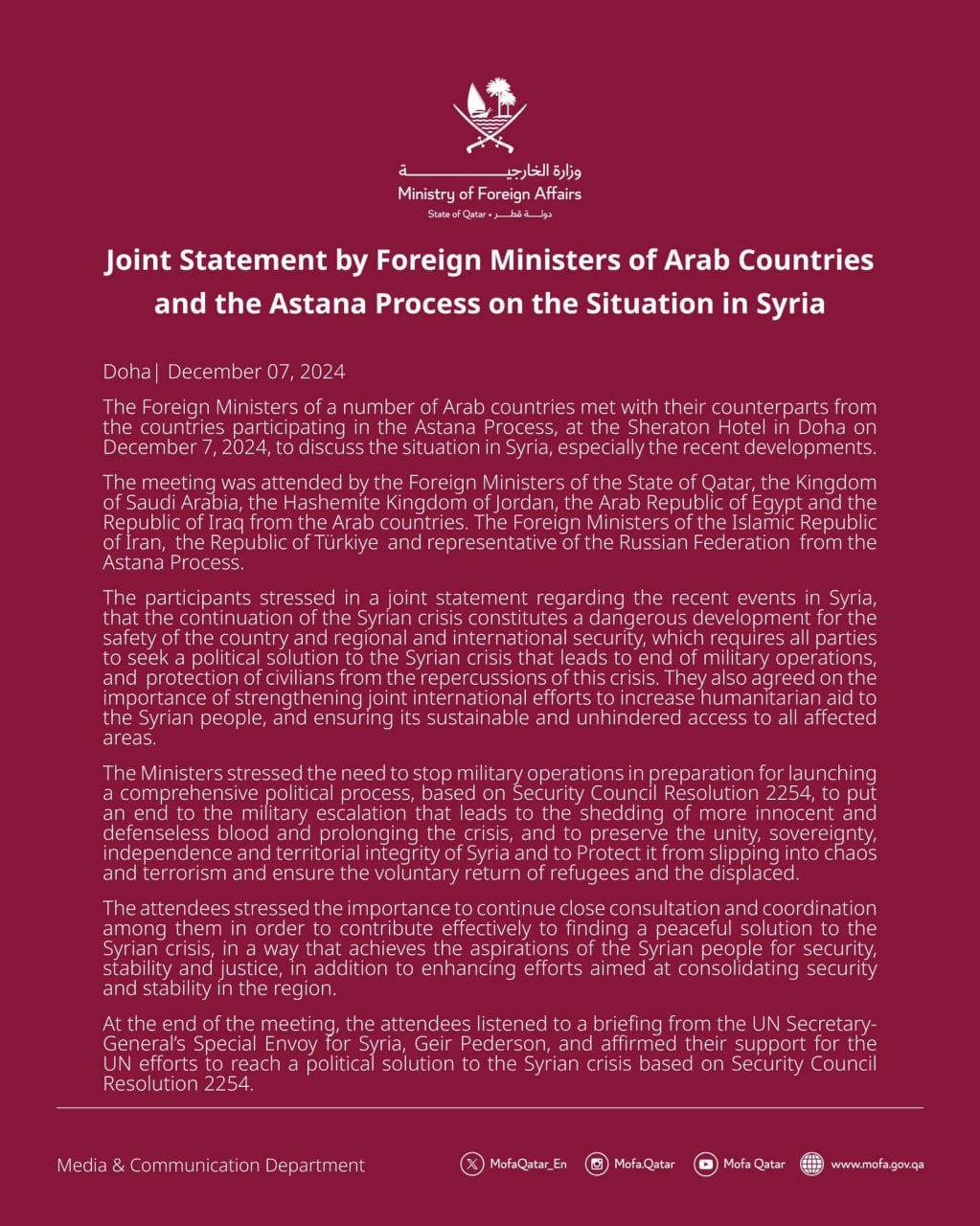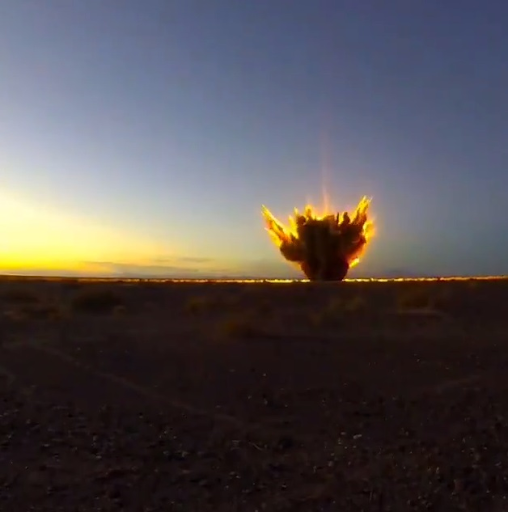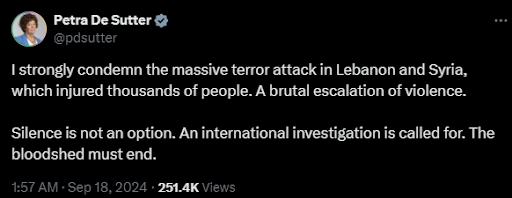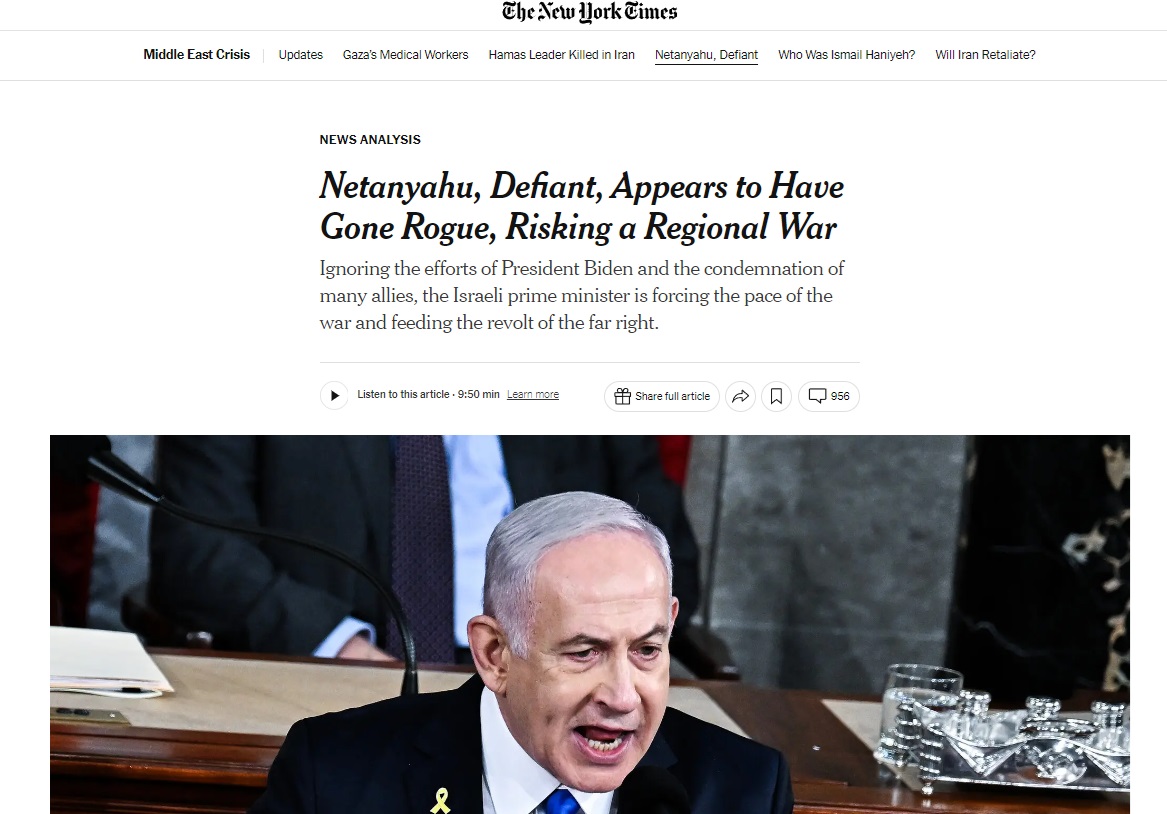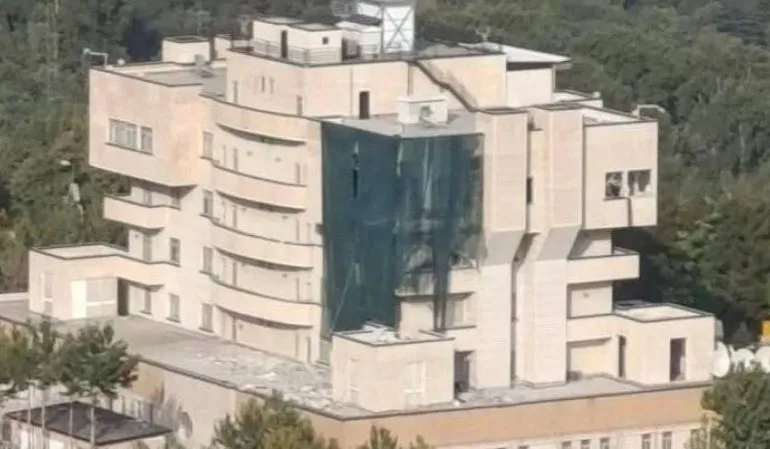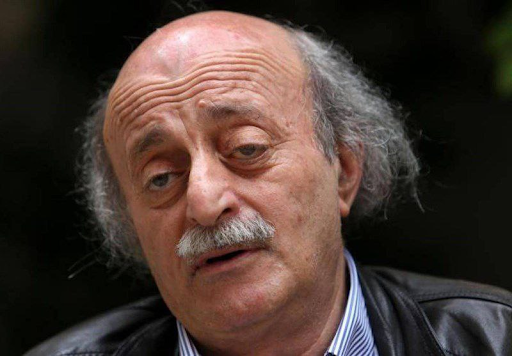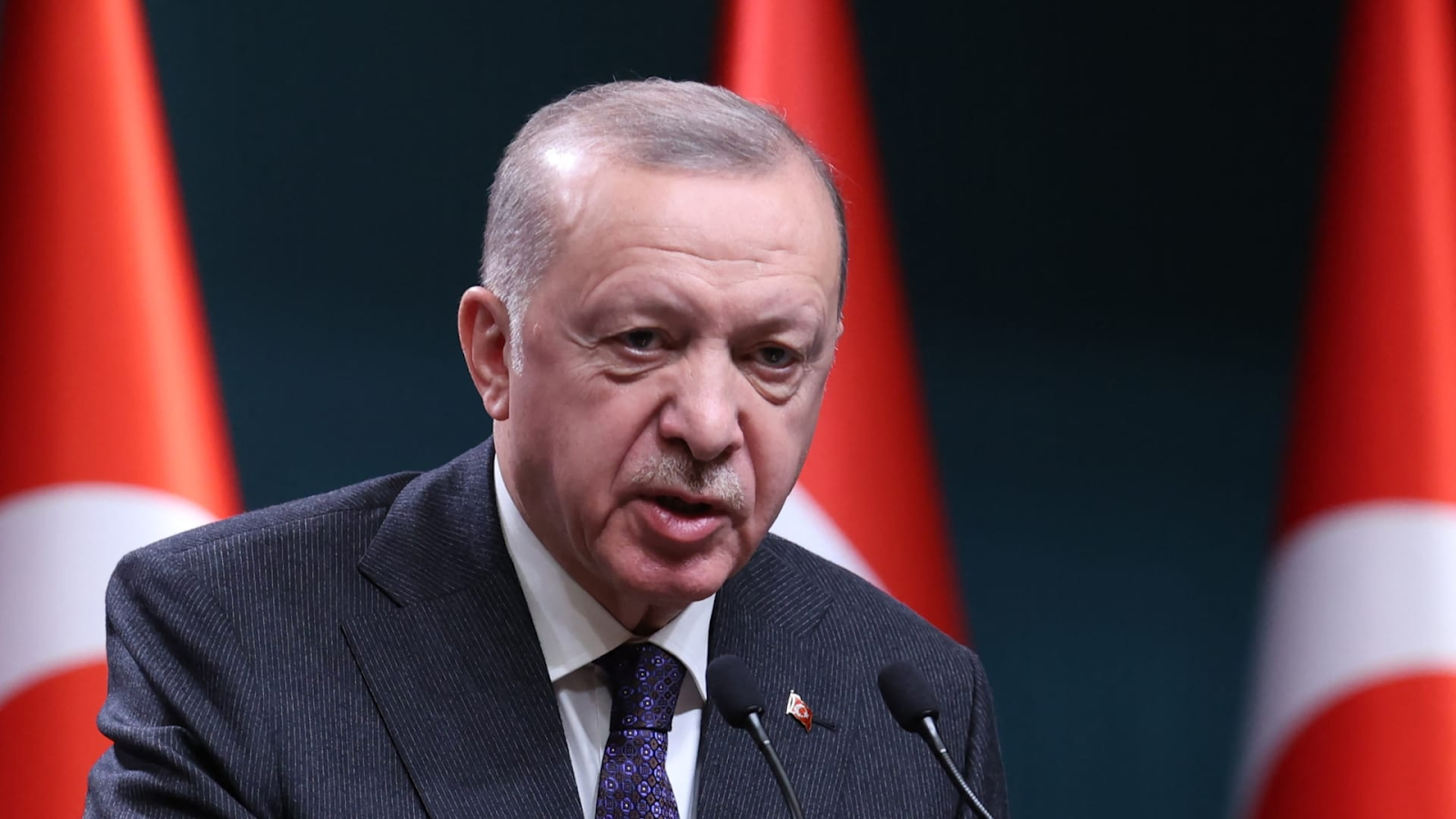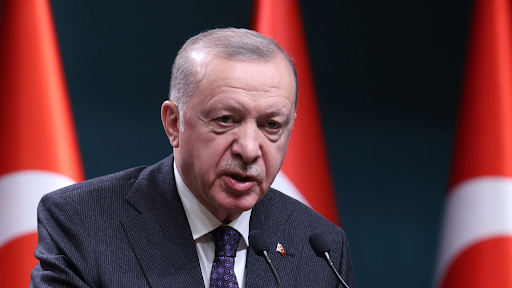
After the one-family rule collapses in Syria, Is Egypt's one man rule next?
"Syria, Assad, wa-bass (and that is it), was no winning slogan. Future of country's cannot be built long-term on the basis of a single figure or a single family. What happened in Syria in the last 14 years is a good example of this political truith.
The fall of the single party single family rule in Syria has collapsed. Egypt's one man rule through the exclusion of any significant political force could put that regime on a path to weakness and possible collapse, too. These small steps by the government in Egypt may suggest their awareness of the dangers of exclusion.Egypt's government releases political prisoners, Azhar welcomes the move
Al-Azhar welcomes Sisi’s directives to remove hundreds of people from terrorist lists and calls for investing in them and building on them.. A debate between those who welcome and those who are cautious and Amr Adeeb: Either us or the Brotherhood.
The repercussions of the decision to remove hundreds of Egyptians from terrorist lists are still ongoing, and no voice is louder than them.
The new thing was in the statement of the Grand Imam, Prof. Dr. Ahmed El-Tayeb, Sheikh of Al-Azhar Al-Sharif, and his deep welcome of the directives of President Abdel Fattah El-Sisi, President of the Republic, which paved the way for removing hundreds of people from the terrorist lists, and giving them the opportunity to start a new page to live normally in their homeland and reunite their families, stressing that it represents a good step, and everyone must invest in it and build on it; for the benefit of our beloved country, calling on God Almighty to preserve our Egypt, and protect it from all harm and evil.
Al-Azhar's statement was met with varying opinions, between those who welcomed it and those who expressed reservations about it.
These developments cannot be understood in isolation from what has been happening in Syria. Arab rulers and governments of neighboring countries are fact-spinning the development to limit their wider effects.
Of note, Egyptian media reported that security forces arrested a group of Syrians in Egypt after they participated in celebrations of the fall of President Bashar al-Assad's regime.
Turkey's Fidan: The Syrian opposition must unite and form a new, non-exclusionary administration
Turkish Foreign Minister Hakan Fidan stressed that "the new Syria should not pose a threat to its neighbors, but should eliminate threats."
Fidan called from Doha for "establishing a new Syrian administration that is non-exclusionary and without a desire for revenge", and for preserving Syrian institutions, and also called for "the opposition forces to unite."
He pointed out that "the Syrian opposition forces consist of different groups, but the coordination mechanism will improve in the coming days."
Turkish Foreign Minister Hakan Fidan announced that “a 14-year era of instability in Syria has ended,” noting that “Ankara does not know anything about the fate of President Bashar al-Assad.” Fidan revealed in a press conference held today that “the Syrian regime could have taken advantage of the opportunity of the Astana talks to reach national reconciliation, but it did not want to,” noting that “President Recep Tayyip Erdogan extended his hand to achieve unity in Syria, but the Syrian regime refused.” At the same time, Fidan expressed his country’s concern about “organizations such as ISIS that may exploit these developments in Syria, and Turkey is closely monitoring them to ensure that they do not control any parts of Syria in any way, and we are coordinating with friends such as the United States in this regard.” Regarding the Kurdistan Workers' Party, Fidan said, "Any extension or expansion of the Kurdistan Workers' Party militia cannot be considered a legitimate entity in Syria, and America is aware of the sensitivity of our position towards it." He continued, "The PKK cannot be part of the Syrian opposition and factions, because they are not Syrian factions, but terrorist factions, and everyone knows that, so there will be no cooperation with them at all." He stressed that "Turkey will take appropriate measures towards any threats."
Iran calls for Syria's fate to be determined and a government formed "without foreign interference"
Iran called for "determining the fate" of Syria's future, and forming an inclusive government that represents all segments of the Syrian people, "without destructive foreign interference or external imposition," stressing that it is "the exclusive right of the Syrians."
The Iranian Foreign Ministry indicated that it will closely monitor developments in Syria and the region, and will take appropriate positions based on the ongoing analysis of the performance of influential players in the Syrian political and security arena.
It also stressed respect for Syria's unity, governance, and territorial integrity, pointing to supporting Syria's stability and security through cooperation with all active parties in the region.
It explained that achieving stability "requires ending military conflicts quickly, preventing terrorist acts, and starting national dialogues with the participation of all components of society, with the aim of forming an inclusive government that represents all segments of the Syrian people."
The Iranian statement also stressed the importance of ensuring the security of Syrian citizens and nationals of other countries, and protecting holy and diplomatic sites in accordance with international laws.
Iran affirmed its continued support for the United Nations mechanisms, under Resolution 2254, to support the political process in Syria.
It also expressed its keenness to continue historical relations and friendship with Syria on the basis of common interests and commitment to international conventions.
Iranian Ambassador to Syria, Hossein Akbari, said that "the Israeli Prime Minister is now expressing his happiness at the removal of one of his enemies," but he pointed out Benjamin Netanyahu's concern that the new forces "may pose an additional threat to him."
Akbari said in a live televised call with state television that "the Syrian Council of Ministers decided in its session last night to avoid any confrontations in Damascus and to hand over power and government peacefully, which was confirmed by the Syrian Prime Minister in a statement addressed to the people and the armed forces."
He added: "Bashar al-Assad's crime was his support for the axis of resistance, and today there are multiple currents inside Syria, some of which are extremist, even if they differ from (ISIS) in some beliefs."
Akbari pointed out that "the current situation in Syria has produced complex alignments between the northern and southern forces, which may turn the country into an arena for conflict between some Arab and Islamic countries and Turkey."
Akbari continued that "Netanyahu considers this a personal gain for him, but at the same time he is concerned that the stability and strength of the new forces in Syria may pose an additional threat to him."
Akbari explained that “these concerns stem from the lack of guarantees for the establishment of a strong and disciplined government in Syria, and from ethnic and ideological divisions, in addition to the possibility of Syria turning into an arena for conflict between regional countries.” He added: “These conditions may destabilize the central government and create cross-border threats.”
Pentagon official: Our presence in eastern Syria is to prevent the return of ISIS
A Pentagon official said that "the presence of US forces in eastern Syria is not related to other aspects of the conflict in the country," stressing "continuing to take the necessary measures to defend our forces and our partners" and to maintain this presence "which aims only to ensure the sustainability of the defeat of ISIS and prevent its resurgence." In an interview with Reuters today, he called on all parties in Syria to "protect civilians, especially minorities, respect international standards and work to reach a comprehensive political settlement," stressing the continuation of "close consultations with partners in the region affected by this crisis to support their security needs."
Statement by the Russian Foreign Ministry:
'We are following the dramatic events in Syria with extreme concern. As a result of negotiations between Bashar al-Assad and a number of participants in the armed conflict in the Syrian Arab Republic, he decided to leave the presidential post and left the country, giving instructions to transfer power peacefully
Russia did not participate in these negotiations. At the same time, we appeal to all parties involved with a strong call to renounce the use of violence and resolve all governance issues by political means.
In this regard, the Russian Federation is in contact with all groups of the Syrian opposition. We call for respect for the opinions of all ethno-confessional forces of Syrian society, and support efforts to establish an inclusive political process based on the unanimously adopted UN Security Council Resolution 2254.
We expect that these approaches will be taken into account by the UN and all interested players, including in the context of the implementation of the initiative of the UN Secretary General's Special Representative for Syria, Georg Pedersen, to urgently organize inter-Syrian inclusive negotiations in Geneva.
At the same time, all necessary measures are being taken to ensure the safety of our citizens in Syria. Russian military bases in Syria are on high alert. There is currently no serious threat to their security.'


